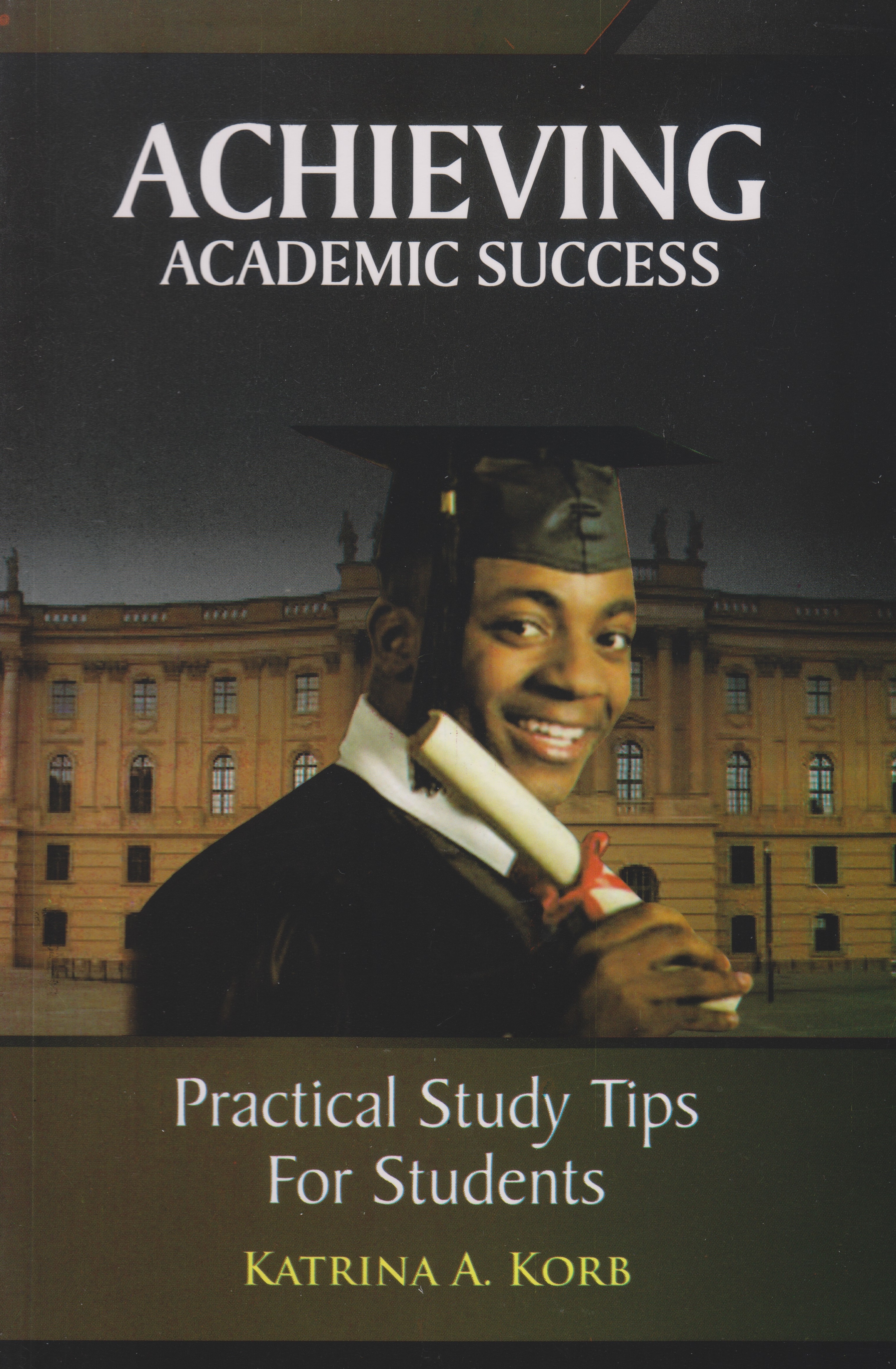

Archer, A., & Gleason, M. (1989). Skills for school success. Billerica, MA: Curriculum Associates.
Arria, A. M., Wilcox, H. C., Caldeira, K. M., Vincent, K. B., Garnier-Dykstra, L. M., & O'Grady, K. E. (2013). Dispelling the myth of "smart drugs": cannabis and alcohol use problems predict nonmedical use of prescription stimulants for studying. Addictive Behavior, 38, 1643-1650.
Bio. (2014). Abraham Lincoln
Bos, C.S., & Vaughn, S. (1998). Strategies for teaching students with learning and behavior problems (4th ed.). Boston, MAL: Allyn and Bacon.
Britt, S. L., Asebedo, S., & Blue, J. M. (2013). Workaholism and well-being. Financial Planning Review, 8, 35-58.
Charles Darwin University. (2013). Research and reading
Crossman, A. (2011). Study smart, study less. Berkeley, CA: Ten Speed Press.
Cunningham, A. E., & Stanovich, K. E. (2001). What reading does for the mind. Journal of Direct Instruction, 1, 137-149.
Dewar, M., Alber, J., Butler, C., Cowan, N., & Sala, S. D. (2012). Brief wakeful resting boosts new memories over the long term. Psychological Science, 23, 955-960.
Eggen, P. & Kauchak, D. (2004). Educational psychology: Windows on classrooms (6th ed.). Upper Saddle River, NJ: Pearson Education.
Ellis, E.S. (1989). A metacognitive intervention for increasing class participation. Learning Disabilities Focus, 5, 36-46.
Grohol, J. (2013). 2 Important Strategies for Effective Studying. Psych Central.
Hampton, M. (2010). Helpful abbreviations for speedy note-taking
Jacobs, L. F., & Hyman, J. S. (2013). The secrets of college success: Over 800 tips, techniques, and strategies revealed (2nd ed.). San Francisco: Jossey-Bass.
King, K. M., Meehan, B. T., Trim, R. S., & Chassin, L. (2007). Substance use and academic outcomes: Synthesizing findings and future directions. Addiction, 101, 1688-1689.
Korb, K. A., Gono, B. K., Jinadu, S. A., John, A. R., Mwoltu, G. N., & Oona, R. N. (2014). Effect of instructional medium on student performance: A comparison of text and oral instruction in Nigeria. Paper presented at the 28th International Congress of Applied Psychology, Paris, France.
Marshall, L., Helgadóttir, H., Mölle, M., & Born, J. (2006). Boosting slow oscillations during sleep potentiates memory. Nature, 444, 610-613.
Mayo Clinic. (2013). How many hours of sleep are enough for good health?
McKeachie, W. J., & Svinicki, M. (2006). McKeachie's teaching tips: Strategies, research, and theory for college and university teachers. Boston: Houghton Mifflin.
McMillan, K., & Weyers, J. (2011). The study skills book. Essex, England: Pearson Education.
Muchnick, C. C., & Muchnick, J. R. (2013). Straight-A study skills: More than 200 essential strategies to ace your exams, boost your grades, and achieve lasting academic success. Avon, MA: Adams Media.
Oxford University Press. (2014). Oxford Dictionaries.
Pauk, W., & Owens, R. J. Q. (2011). How to study in college (10th ed.). Boston: Wadsworth.
Peper, R. J., & Mayer, R. E. (1978). Note taking as a generative activity. Journal of Educational Psychology, 70, 514-522.
Reeve, J. (2001). Understanding motivation and emotion (3rd ed). New York: John Wiley & Sons.
Salmon, P. (2001). Effects of physical exercise on anxiety, depression, and sensitivity to stress: A unifying theory. Clinical Psychology Review, 21, 33-61.
Seligman, M. E. P. (2008). Positive health. Applied Psychology: An International Review, 57, 3-18.
Sloan, C. A., & McGinnis, I. (1982). The effect of handwriting on teachers' grading of high school essays. Journal of the Association for the Study of Perception, 17, 15-21.
Snow, (2002). Reading for understanding: Toward an R&D program in reading comprehension. Santa Monica, CA: RAND.
Stein, T. (2013). Kicking the procrastination "habit." Psychology Today.
U. S. Department of Health and Human Services. (2009). Alcohol and other drug use and academic achievement.
Wong, L. (2015). Essential study skills (8th ed.). Stamford, CT: Cengage Learning.
Zimmerman, B. J. (2002). Becoming a self-regulated learner: An overview. Theory into Practice, 41, 64-70.